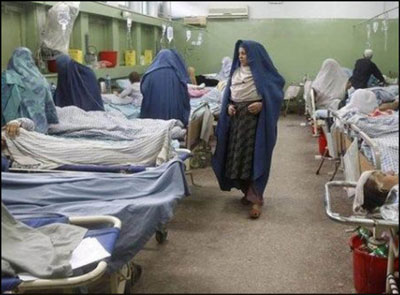The World Health Organization (WHO) has warned that fundamental and life-saving primary health care services in Afghanistan are under severe threat. It is, therefore, making an urgent appeal to international donors to rapidly finance the Sehatmandi pro-gramme, as they have done for almost two decades.
The programme is the backbone of Afghanistan’s health system, providing care for millions of people through 2 331 health facilities.
The primary care facility in the village is vital, serv-ing 58 000 people including 13 340 women of childbearing age and 11 600 children under-five. Importantly, it provides emergency obstetric care, including Caesarean section services. Without this, women would have to travel far, and put themselves and their babies at risk.
Due to a lack of funding, staff in the health facility have not received their salaries for months, the clinic is faced with shortages of medicine and sup-plies, and patients are not able to access the essen-tial health services they need. If this facility closes down, increasing ill-health and mortality is inevita-ble. The facility’s struggles are not unique. The situation is replicated across the country be-cause the Sehatmandi programme is no longer able to receive appropriate financial support due to the change in Afghanistan’s government. In August 2021, when the Taliban took over Kabul, donors found it impossible to provide financing through the new regime, and major funding was withdrawn. Previously funded by the World Bank, the European Commission, and USAID, there are now serious challenges to continuing these vital primary health care services.
The population is also suffering due to a recent drought that has affected crops and livestock. This, combined with rising food prices and the collapse of public services, led to acute food insecurity for nearly 19 million people in September and October 2021. —Agencies










